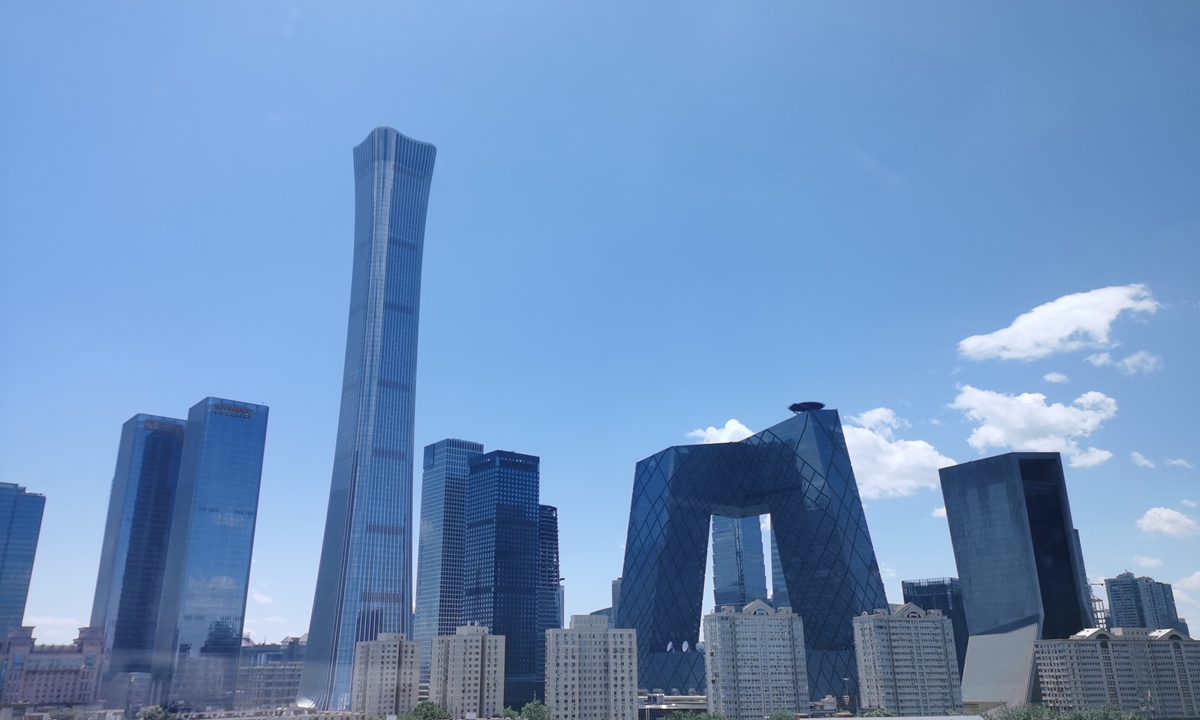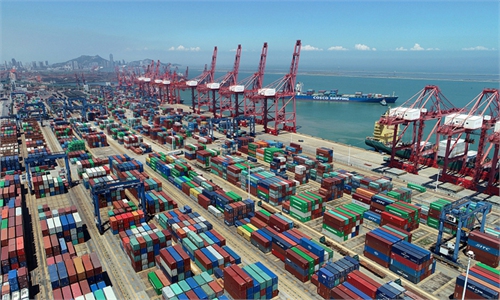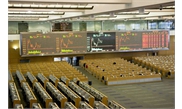China to build unified national market to tackle persistent issues, enhance economic security
Major push to tackle persistent issues, enhance economic security

Buildings in Beijing CBD are seen under blue sky Photo: Li Lei/GT
China on Sunday unveiled guidelines for accelerating the building of a unified national market, envisioning breaking local protection and market fragmentation and unblocking key sticking points that weigh on economic circulation, as part of a wide-ranging push for an effectively regulated, fairly competitive and fully open market across the country.
The far-reaching ordinance encompassing energy, technology, property rights protection and market regulation is intended to address some persistent problems in the country's reformist shift toward being market-oriented, experts said. They described the new guidelines issued by the Communist Party of China (CPC) Central Committee and the State Council, the cabinet, as a vital boost to China's two-pronged focus on economic development and security.
The new regulation eyes a comprehensive push for the country's market to shift from being big toward becoming powerful, buttressing efforts to build a high-level socialist market economic system, read a full text of the guidelines published by the Xinhua News Agency on Sunday.
The Sunday announcement came roughly four months after the guidelines were reviewed and approved at the 23rd meeting of the central committee for deepening overall reform in mid-December.
To build a new development paradigm, it is imperative to speed up the building of a unified national market that is efficient, standardized, open and allows fair competition. It is also vital to establish unified market rules and regulations across the country and promote the smooth flow of goods, factors and resources on a wider scale, President Xi Jinping said while chairing the December meeting, according to Xinhua.
Xi urged efforts to speed up the transformation of government functions, improve government oversight efficiency, promote better alignment between an efficient market and a capable government, and protect the legitimate rights and interests of companies and people's lives and property.
The weighty announcement on Sunday is expected to inject confidence into both the consumer market and producer market in anticipation of unified and coordinated rule-setting and implementation when it comes to labor, capital and innovation, among various parts of the market, Cao Heping, an economist at Peking University, told the Global Times on Sunday.
The new guidelines intend to rely on high-quality supplies to create and guide demand, enabling smoother production, distribution, circulation and consumption as market operation becomes more efficient. Notably, the regulation urges a problem-oriented approach to address striking paradoxes and problems, and to accelerate the elimination of varied rules and practices that hamper a unified market and fair competition, according to the Sunday announcement, calling for the breaking of "various closed small markets and self-centered small circulations."
As part of the efforts, the guidelines flag the need for the creation of a unified national energy market. Efforts are expected to ramp up the creation of a unified natural gas measuring and pricing system, consider the building of a national electricity trading center at an opportune time, and press ahead with the improvement of a unified national coal trading market.
These measures apparently address some notable persistent issues with the energy market that exemplify woes over the multifaceted market as a whole: barriers inherent in different parts of the country point to a mismatch between central government policymaking and local government implementation, Lin Boqiang, director of the China Center for Energy Economics Research at Xiamen University, told the Global Times on Sunday.
Coal supply shortages that ravaged the country last year and increasing awareness about energy security amid the Russia-Ukraine conflict, according to Lin, make the case for a heightened push for energy market allocation and planning at a national level.
That means an imperative drive away from the long-held fragmented approach to economic and industrial policy implementation among different provinces and cities, he continued, calling attention to an increasing focus on secure growth.
Systemic coordination got a mention in the guidelines, which envisaged elevated government oversight efficiency and improved capacity to "dynamically safeguard market stability and economic security."
As the guidelines stipulate, the country would strengthen the building of an emergency logistics system, improve transport facilities and logistics stations in high-risk areas in terms of disaster exposures, and avoid supply shortage risks in major products such as food and energy.
The guidelines also called for an institutional opening-up to further improve the country's clout in global supply chains and innovation chains for there to be a greater say in international economic governance.
The guidelines, which instantly went viral on Chinese social media, also proposed the nurturing of a unified technology and data market as the country plans to encourage sci-tech information exchanges and interaction among different regions, push for the opening and sharing of major scientific infrastructure and equipment, and step up international cooperation.
In addition, calls for better use of platforms aimed at promoting Chinese brands and progress on unified national standard setting in areas such as facial recognition, finger vein and iris scans were among the most talked-about parts of the guidelines.


